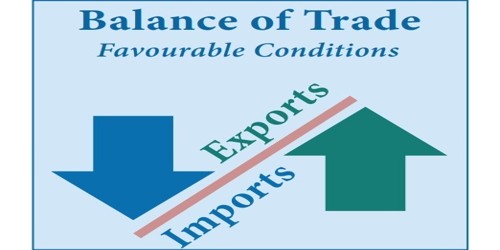
Inflation is a critical economic factor that can significantly influence your wealth-building strategy. It affects everything from the purchasing power of your money to the returns on your investments. As prices rise, failing to account for inflation can erode your wealth over time, making it essential for investors and individuals looking to build wealth to understand its implications.
Understanding Inflation
What Is Inflation?
Inflation is the rate at which the general level of prices for goods and services rises, resulting in a decrease in purchasing power. When inflation is rising, each unit of currency buys fewer goods and services. For example, if the inflation rate is 3 percent, a product that costs 100 dollars today will cost 103 dollars next year.
Types of Inflation
There are various types of inflation, and understanding them can provide insights into how they may affect your financial strategy:
Demand-Pull Inflation: This type occurs when the demand for goods and services exceeds their supply. It is often linked to a growing economy where consumers are spending more, leading to increased prices.
Cost-Push Inflation: Cost-push inflation happens when the costs of production rise, leading businesses to pass those costs onto consumers in the form of higher prices. This can result from increases in wages or supply chain issues.
Built-In Inflation: Also known as wage-price inflation, this type occurs when businesses raise wages to attract workers, leading to higher costs and subsequently higher prices for goods and services.
The Importance of Accounting for Inflation in Wealth Building

Erosion of Purchasing Power
One of the most significant impacts of inflation is the erosion of purchasing power. As prices rise, the value of money diminishes. For example, if you are saving cash, the real value of those savings decreases over time if the interest rate on your savings account does not exceed the inflation rate. This makes it vital to invest in assets that can outpace inflation to protect and grow your wealth.
Investment Returns vs. Inflation
When evaluating your investments, it is essential to consider the real rate of return. The real rate of return is the nominal return minus the inflation rate. For instance, if an investment has a nominal return of 6 percent but inflation is at 3 percent, your real return is only 3 percent. This reality emphasizes the need to include inflation considerations in your investment strategy.
Long-Term Financial Planning
Inflation can impact long-term financial planning in several key areas:
Retirement Planning: Rising inflation can significantly affect retirement savings. If your retirement plan does not account for inflation, you may find that your nest egg is insufficient to cover your living expenses in retirement.
Educational Costs: The cost of education has consistently risen over the years, often outpacing general inflation. When planning for your children’s education, it is crucial to consider the future cost of tuition and other related expenses.
Healthcare Costs: Similar to education, healthcare costs tend to rise faster than general inflation. Future medical expenses need to be factored into your wealth-building strategy to ensure that you can cover them in retirement.
How to Protect Your Wealth Against Inflation
Diversify Your Investment Portfolio
One of the best strategies for hedging against inflation is diversification. By spreading your investments across a variety of asset classes, you can reduce risk and increase the likelihood of achieving returns that outpace inflation. Consider including the following in your portfolio:
Stocks: Equities have historically outperformed inflation over the long term. Companies that can raise prices in response to increased costs often see their stock values rise, making equities a vital component of an inflation-hedged portfolio.
Real Estate: Real estate is another excellent hedge against inflation. Property values and rents typically increase over time, providing a potential source of income and appreciation.
Commodities: Investing in physical goods like gold, silver, and other commodities can help protect your wealth during inflationary periods. These assets often maintain or increase their value as currency loses purchasing power.
Inflation-Protected Securities: Consider incorporating government-issued securities designed to protect against inflation. In the United States, Treasury Inflation-Protected Securities (TIPS) have principal values that increase with inflation, providing a reliable investment choice.
Focus on Income-Generating Investments
Investments that generate income can help counteract the effects of inflation. By reinvesting earnings and dividends, you may be able to create a compounding effect that helps your portfolio grow. Consider the following income-generating investments:
Dividend Stocks: Companies that consistently pay dividends can provide a steady income stream and the potential for capital appreciation. Look for businesses with a history of increasing dividends over time, as this can help outpace inflation.
Real Estate Investment Trusts (REITs): REITs offer exposure to real estate without requiring direct ownership of property. They often generate rental income and can provide dividends while benefiting from property value appreciation.
Fixed Income Investments: While traditional bonds may suffer during inflationary periods, certain fixed-income investments, such as TIPS, can help protect against rising prices.
Embrace Alternative Investments
Alternative investments can provide additional diversification and protection against inflation. These include:
Private Equity: Investing in private companies may provide higher returns than traditional investments, especially during inflationary periods. However, these investments can be illiquid and require a longer-term commitment.
Hedge Funds: Hedge funds employ various strategies that can potentially generate returns regardless of market conditions. Some hedge funds actively invest in inflation-sensitive assets.
Commodities and Cryptocurrency: As mentioned earlier, commodities serve as physical assets that often increase in value during inflationary times. Additionally, cryptocurrencies like Bitcoin are increasingly regarded as potential hedges against inflation, although they come with high volatility and risks.
Reassess Your Financial Goals
Inflation may necessitate a reassessment of your financial goals. As the cost of living increases, your savings and investment strategies should be aligned with your long-term objectives. Consider the following actions:
Increase Savings Rate: In light of inflation, you may need to increase your savings rate to maintain your financial goals and offset rising costs.
Adjust Retirement Plans: Evaluate your retirement plan assumptions. If you anticipate living longer, or if inflation is higher than previously estimated, you may need to adjust your savings targets accordingly.
Regularly Review Goals: Make it a habit to review your financial goals and asset allocation at least annually. By adjusting your plan in response to economic changes and personal circumstances, you can stay on track to achieve your wealth-building objectives.
The Role of Financial Advisors in Managing Inflation Risks

Given the complexities of inflation and its impact on wealth-building strategies, working with a qualified financial advisor can be beneficial. Advisors bring expertise and insight, allowing you to make informed decisions in an ever-changing economic environment. Consider the following benefits of working with a financial advisor:
Comprehensive Planning
A financial advisor can help you develop a holistic financial plan that accounts for inflation and other economic risks. They can assess your current financial situation, outline your goals, and develop a customized strategy to achieve those objectives.
Asset Allocation Expertise
Advisors understand the nuances of asset allocation and can guide you in constructing a diversified portfolio that is resilient to rising inflation. They can help you select appropriate investments to balance growth and risk.
Ongoing Monitoring and Adjustments
The financial markets are dynamic, and inflation can fluctuate unexpectedly. Working with an advisor allows for ongoing monitoring of your investments, making it easier to adjust your strategy as conditions evolve.
Education and Insights
Financial advisors provide education and insights that can enhance your understanding of inflation and its effects on your wealth-building strategies. This knowledge empowers you to make informed decisions about your financial future.
Conclusion
Inflation is a significant factor in wealth building that requires careful consideration and strategic planning. As prices rise over time, the erosion of purchasing power can undermine your savings and investments if not addressed. By understanding inflation's impact on your financial goals and employing effective strategies to safeguard against it, you can build and preserve your wealth over the long term.
Diversifying your portfolio, focusing on income-generating assets, embracing alternative investments, and regularly reassessing your financial goals are all critical steps in developing a robust wealth-building strategy in an inflationary environment. Moreover, considering the guidance of a financial advisor can further enhance your ability to navigate the complexities of inflation and achieve your financial objectives.
Staying informed, adaptable, and proactive will not only help you address the challenges posed by inflation but also place you in a stronger position to thrive in your wealth-building journey.








